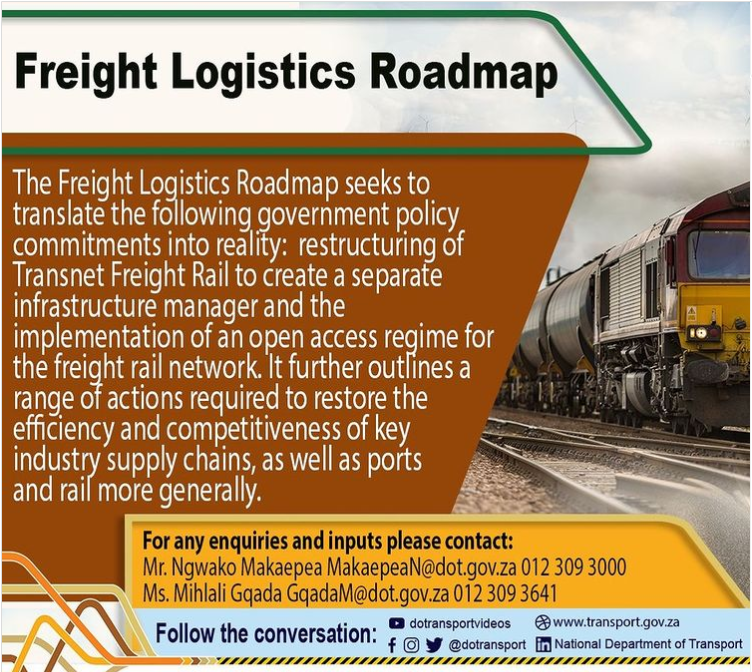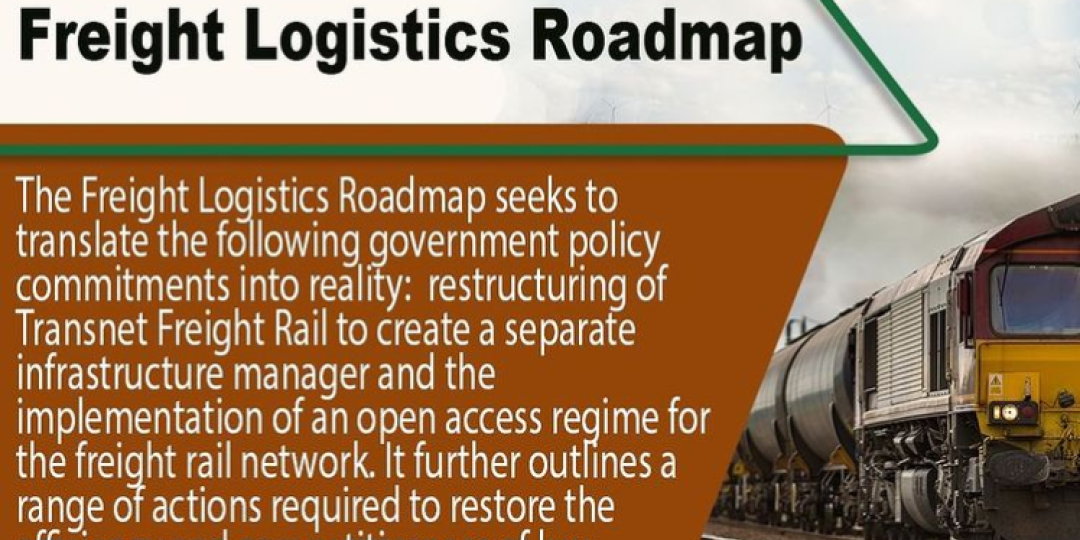Cabinet has approved the Freight Logistics Roadmap to stabilise and improve the operational performance of Transnet’s freight rail network, which is posing a severe constraint to the handling of exports.
Speaking during a post-Cabinet media briefing on the roadmap on Monday, Minister in the Presidency Khumbudzo Ntshavheni said the current challenges in the industry “pose a significant constraint” on the South African economy, its growth prospects and job creation.
“The immediate priority is to stabilise and improve the operational performance of the freight rail network, which presents a severe constraint on exports,” said Ntshavheni.
“The main implementation mechanism for the short-term interventions will oversee operational improvement through five corridors, with full alignment with the Transnet board approved turnaround plan, which identifies short- and medium-term actions to improve operations and stabilise the company’s finances,” she said.
The three areas of intervention proposed in the roadmap include:
• Operations and rolling stock improvements: This includes returning long-standing locomotives to service through agreements with Original Equipment Manufacturers (OEMs) to ensure a supply of spares, or through the appointment of a step-in OEM.
• Security and safety of the rail network: This includes collaboration with law enforcement agencies to ensure the safety of the network. A capital investment programme both for the expansion plans and also to sustain operations.
“In addition, the roadmap outlines a path to implement the commitments made in the National Rail Policy and the National Commercial Ports Policy and plans for the reform of the freight logistics system,” she said.
The Draft Rail Private Sector Participation (PSP) Framework has also been considered and approved by Cabinet. The framework aims to provide an interim approach and a model for future decision-making to enable private-sector participation in the railway infrastructure system.
“Given the current challenges within the railway infrastructure, the Rail PSP Framework proposes the commencement of private-sector participation through opportunities that are aimed at fixing the railway infrastructure first,” said Ntshavheni.
The Department of Transport is expected to establish a PSP unit to identify and prioritise projects and develop an implementation plan to facilitate initiatives. – SAnews.gov.za














